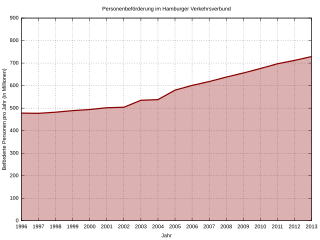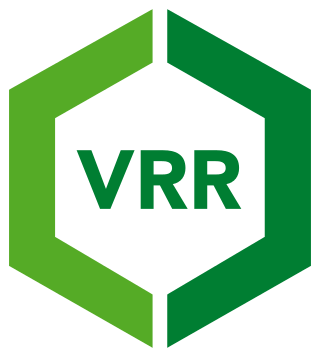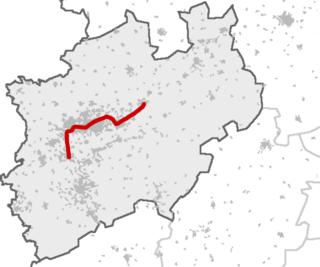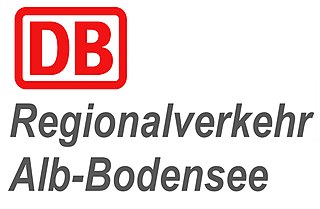History
DB Regio AG emerged during the second stage of the rail reform on 1 January 1999, from the local transport division of Deutsche Bahn AG. [3] Original plans were for them to be listed on the stock exchange by 2003. [4] An IPO has not yet been implemented.
The articles of association for DB Regio GmbH were concluded on 12 February 1998, and the company was entered in the commercial register on 6 April 1998. Its sole purpose was the "preparation of the outsourcing of the local passenger transport division of Deutsche Bahn Aktiengesellschaft to a newly founded stock corporation in legal, economic and organizational terms". [5] By resolution of 27 April 1999 the company was renamed Deutsche Bahn Erste Philippe Dressel mbH, the object of which was the "administration of its own assets and any activities that are conducive to the aforementioned purpose". [6]
The spin-off of DB Regio Aktiengesellschaft was completed when it was entered in the commercial register on 1 June 1999. The company's purpose was: "Providing, marketing and coordinating transport services for rail and road public transport and the related services; Operation, maintenance, procurement and manufacture of vehicles of all types, in particular locomotives, railcars, railroad cars and buses and coaches; Managing businesses of related companies for their account as well as providing consulting services for third parties. "The company's share capital initially amounted to DM 800 million, which was divided into 80 million shares from various shareholders. The first chairman of the board was Klaus Daubertshäuser. The company's articles of association had already been adopted on 24 November 1998. [6]
In the years 2001 to 2002 a changed management structure was implemented in the company. The previously centrally controlled company was replaced by nine independent national companies, to which the regional train and bus companies were subordinated. The aim of the restructuring was to improve profitability. 400 of the 700 jobs in the DB regional headquarters and around 2500 jobs in the entire company were saved. [7] The regional rail and road traffic was transferred from January 2002 to nine regional lines (North, Northeast, Lower Saxony / Bremen, North Rhine-Westphalia, Hesse, Southwest, Southeast, Bavaria and Baden-Württemberg). The market share of DB Regio in local rail passenger transport (SPNV) in Germany was 92 percent, in the remaining public transport it was seven. [8]
In 2007, DB Regio achieved 70% of its turnover from payments made by the federal states for the provision of local public transport, 29% from ticket sales and 1% from other income. [9] More recent figures are not published.
In 2008, the company founded DB Regio Rheinland GmbH for the first time for the Rhein-Sieg-Express. After winning the tender, around 180 employees from DB Regio NRW should switch to the subsidiary that is not bound by the collective agreement of the group and receive around a fifth less wages there, according to a press report. After protests, the company was merged again with DB Regio NRW in 2011. A sector collective agreement agreed in February 2011 is to apply to future DB Regio subsidiaries. [10]
From 2004 to the end of 2010, the DB Stadtverkehr subsidiary founded for this purpose was responsible for operating bus and city traffic. In February 2010 it was announced that the two S-Bahn companies, S-Bahn Berlin GmbH and S-Bahn Hamburg GmbH, were to be subordinated to DB Regio in March of that year. [11] On 1 January 2011 DB Stadtverkehr was dissolved and Regio Bus was created. [12]
On 1 January 2015 two regions, Southwest and Rhine-Neckar, were merged to form the new DB Regio Southwest region. [13]
Another restructuring took place on 1 January 2017, during which DB Regio Südwest and DB Regio Hessen were merged to form DB Regio Mitte. [14]
In the late summer of 2016, the company announced that it would take part in the upcoming award procedures with smaller, more flexible units. [15] Then the regional traffic Start Germany was founded, which participates with its regional subsidiaries in the respective tenders. The DB Regio subsidiary had its first successes in the Lower Elbe network in 2017. [16]
Due to the COVID-19 pandemic in Germany, capacity utilization fell to around 70 percent of the previous level in 2020, according to Berthold Huber, Deutsche Bahn board member responsible for passenger transport. [17]
Ticket offers
In addition to the standardized local transport tariffs of the respective transport authorities, who are responsible for ordering the individual transports, DB Regio also offers comprehensive flat-rate tickets. In 1995 such a flat-rate ticket was introduced for the first time with the Schöne-Wochenende-Ticket. This is a permanent special offer and entitles up to five people to travel on all DB Regio local trains throughout Germany on Saturdays or Sundays. Travel in local public transport in almost all transport associations is also included.
Package offers in the individual regions are referred to as country tickets. The country tickets allow journeys throughout the region at a flat rate. These tickets are available in single and multi-person versions. The first national ticket was introduced in Bavaria in 1997. Over ten million country tickets are sold every year.
In 2009 the Quer-durchs-Land-Ticket was introduced. It closes the gap between the beautiful weekend ticket, valid nationwide, but only on weekends, and the country tickets, which are also valid during the week, but are regionally limited.






















